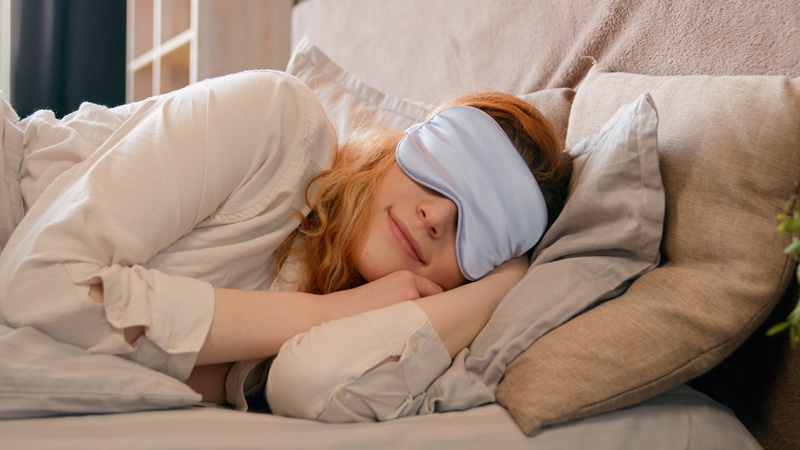In our fast-paced world filled with screens, stress, and irregular daily schedules, getting a good night’s sleep can sometimes feel elusive. However, improving your sleep is achievable with some deliberate lifestyle adjustments and habits. To making sleeping a little easier for you, here are 15 well-documented tips to sleep better at night that will help ensure you wake up refreshed and ready to take on your day.

1. Establish a Consistent Sleep Schedule
One of the most effective tips to sleep better at night is to go to bed and wake up at the same time every day—even on weekends. Consistency reinforces your body’s sleep-wake cycle and can help you fall asleep more quickly and enjoy deeper sleep.
2. Create a Relaxing Bedtime Routine
Transitioning to bedtime with a relaxing routine signals your body it’s time to wind down. Activities like reading, taking a warm bath, or practicing gentle yoga can significantly improve your ability to sleep better at night.
3. Optimize Your Sleep Environment
Make your bedroom a sleep-inducing environment. This means cool, dark, and quiet. Invest in blackout curtains or blinds to limit light exposure, ensure your bedding is comfortable, and consider using earplugs or white noise machines to block out disruptive sounds.
4. Watch What You Eat and Drink
Avoid heavy or large meals within a couple of hours of bedtime. Feeling stuffed or hungry can cause discomfort and keep you up. Also, limit caffeine and nicotine intake, as these stimulants can disrupt your sleep patterns.
5. Limit Naps
While napping can be a way to catch up on missed sleep, if you have trouble sleeping better at night, limit your naps or eliminate them altogether, especially in the afternoon.
6. Include Physical Activity in Your Routine
Regular physical activity can help you fall asleep faster and enjoy deeper sleep. Timing is important, though; exercising too close to bedtime can leave you too energized to sleep.
7. Manage Worries
Try to resolve your worries or concerns before bedtime. Jot down what’s on your mind and set it aside for tomorrow. Stress management might help reduce sleep difficulties, including techniques like mindfulness, deep breathing or talking to a counselor.
8. Use the Bed Only for Sleep and Intimacy
Don’t use your bed for work, watching TV, or scrolling through your phone. This helps strengthen the association between your bed and sleep, making it easier to wind down at night.
9. Control Exposure to Light
Melatonin is a naturally occurring hormone controlled by light exposure that helps regulate your sleep-wake cycle. Spend more time outside during daylight, and reduce light exposure from screens at least one hour before bed to help you sleep better at night.
10. Embrace the Dark
If possible, use blackout curtains to keep your room dark. This encourages melatonin production and can significantly improve your sleep quality.
11. Consider Sleep Aids Carefully
While sleep aids can be beneficial for short-term sleep issues, they’re not a cure for insomnia. If you decide to try sleep medication, consult your doctor for safety and efficacy. There are also many non habit forming natural sleep aids you can try before medication such as melatonin, chamomile tea and more.
12. Mind Your Sleep Position
Your sleeping posture can greatly affect how well you sleep at night. Experiment with different positions to find one that suits you best. While some people sleep best on their back, others find that sleeping on their side helps them to sleep better at night.
Changing my bed’s position in the room made a huge difference in the quality of my sleep. A big part of this solution was moving further away from sounds that were affecting my ability to go to and stay asleep.
13. Invest in Quality Bedding
Your mattress and pillows play a critical role in how well you sleep. Choose a mattress and pillows that support a comfortable sleeping position, and replace them when they are no longer supportive.
14. Check Your Room’s Temperature
The optimal temperature for sleep is between 60-67 degrees Fahrenheit (15-19 degrees Celsius). A room that is too hot or too cold can interfere with quality sleep.
15. Use Relaxation Techniques
Try relaxation exercises or meditation to calm your mind. Videos, soundtracks and apps that guide you through meditation or relaxation techniques can be very effective in helping you sleep better at night.
By implementing these tips to sleep better at night, you’re setting the stage for a restful sleep experience. Remember, sleeping well directly benefits your mental, emotional, and physical health. Start tonight, and you could be on your way to the best sleep of your life. Sweet dreams await!
Stone Evans, Founder of SleepCoaching.com
Stone Evans is the founder of SleepCoaching.com which has become one of the most popular destinations online for people seeking better sleep. Stone started developing this website after realizing his own sleep struggles and then beginning an intensive period of study (which included professional sleep coach training) and ongoing lifestyle changes to improve and optimize his sleep.
Now through in-depth articles from sleep experts around the world, the internet's leading and most comprehensive sleep coaching directory, quantitative sleep product reviews and Stone's personal daily sleep tracking journey, visitors to our website regularly report gaining information and insights that are helping them achieve better health, better sleep and a better quality of life.


What a comprehensive list of tips for better sleep! I completely agree with the emphasis on creating a consistent sleep schedule. I’ve found that sticking to the same bedtime and wake-up time, even on weekends, has made a huge difference in how rested I feel.
The idea of associating your bed only with sleep and intimacy really struck a chord with me. It’s so easy to fall into the trap of scrolling through your phone in bed, which definitely disrupts that restful mindset.
Thank you for compiling these practical, actionable steps. It’s a reminder that good sleep hygiene is within our control, and it’s so worth the effort for the mental and physical benefits.
Hey there,
I just stumbled upon your article on tips for better sleep, and I have to say, it’s packed with golden advice! You’ve managed to turn sleep improvement into a simple and actionable guide that anyone can follow.
I especially loved how you highlighted the importance of a consistent sleep schedule and winding down with a calming routine. These are game-changers!
This is the kind of content that needs to be shared far and wide because it’s practical, relatable, and super helpful. Let’s get this viral!
Best,
Gabriel John
Hi,
I think the majority of people need some coaching on how to sleep better. This post is a great guide! I especially appreciate the emphasis on creating a consistent sleep schedule and optimizing the sleep environment.
It’s amazing how small changes, like adjusting the room temperature or investing in quality bedding, can make such a big difference in sleep quality. I’m definitely going to try incorporating more relaxation techniques into my bedtime routine. Thanks for these practical and actionable tips!
– Scott
Hi!
I found this article really helpful! It’s surprising how small changes, like adjusting your room temperature or sticking to a consistent sleep schedule, can make such a difference in sleep quality.
My son struggles with anxiety and has a difficult time sleeping. I’ll be sure to pass this article on to him!
I’m curious, have you tried any of these tips, and if so, which one has made the biggest impact on your sleep?
Thanks again,
Suzanne
Hi Suzanne, I’m glad you found the article helpful. Yes, I’m a student of what I share and incorporate all of these strategies to sleep better. I also share my nightly quest to improve sleep and share additional actions I take in my Sleep Tracker posts here: https://sleepcoaching.com/trac…
I really appreciate the thoroughness of your tips for improving sleep; they cover a lot of crucial aspects! From personal experience, I’ve found that creating a consistent sleep schedule has been one of the most effective changes I’ve made. I used to struggle with irregular sleep patterns, often staying up late on weekends and then having difficulty waking up during the week. Since I started going to bed and waking up at the same time every day, my sleep quality has improved significantly.
Creating a relaxing bedtime routine is another game-changer for me. I used to find myself tossing and turning because my mind was racing with thoughts from the day. Incorporating a calming activity like reading a book or practicing mindfulness before bed has helped me wind down and prepare for a restful night. I especially love the suggestion to use the bed only for sleep and intimacy. I’ve noticed that when I used my bed for work or watching TV, it became harder to associate it with relaxation and sleep.
Regarding sleep environment optimization, I made a simple change by investing in blackout curtains and it made a world of difference. I was skeptical at first, but keeping the room dark has really helped with falling asleep faster and staying asleep longer. I also agree with your point about temperature control. I used to keep my room too warm, which made it difficult to sleep soundly. Adjusting the thermostat to a cooler setting has improved my sleep quality tremendously.
One tip I’d add from my experience is about managing exposure to light, especially from screens. I’ve started using blue light filters on my devices in the evening, and it seems to help with my sleep onset. I also make a point to spend time outside during daylight hours, which seems to help regulate my internal clock better.
On the topic of sleep aids, I’ve found that while natural options like chamomile tea or melatonin can be helpful occasionally, establishing a solid sleep routine is often more effective in the long run. It’s great to see a focus on non-habit forming solutions in your article.
Overall, the combination of a consistent sleep schedule, a relaxing pre-bedtime routine, and optimizing the sleep environment has made a significant difference in my ability to sleep better. Thanks for sharing these tips—they’re practical and backed by solid advice that’s definitely helped me on my journey to better sleep!
Hi Lawrence, thank you for your feedback. You’ve provided some great insights!
I agree that blocking blue light at night is very important. I also use a variety of methods for this including blue light blocking glasses, Iris software on my computer, Drift TV for my television and low output halogen bulbs and red light bulbs in appropriate places around the house.
Once again, thanks for sharing your experiences and sleep wisdom! 🙂